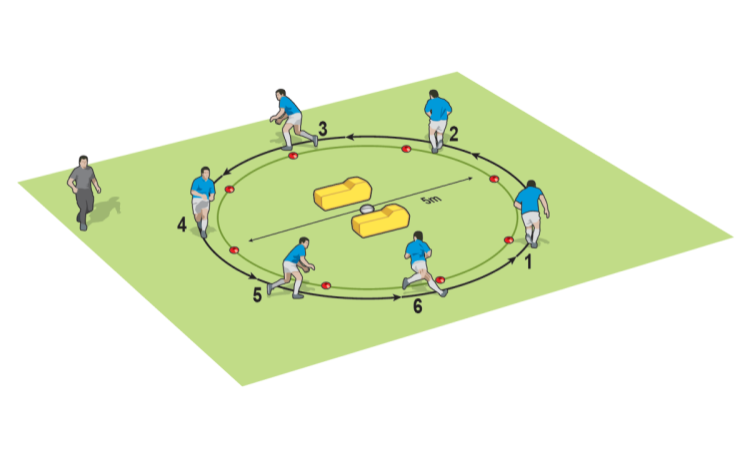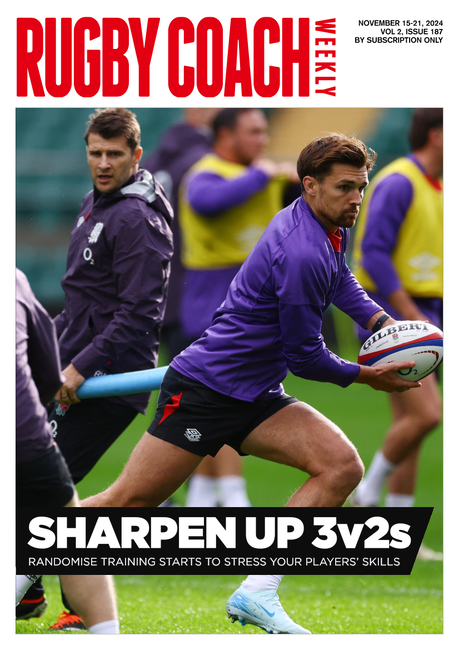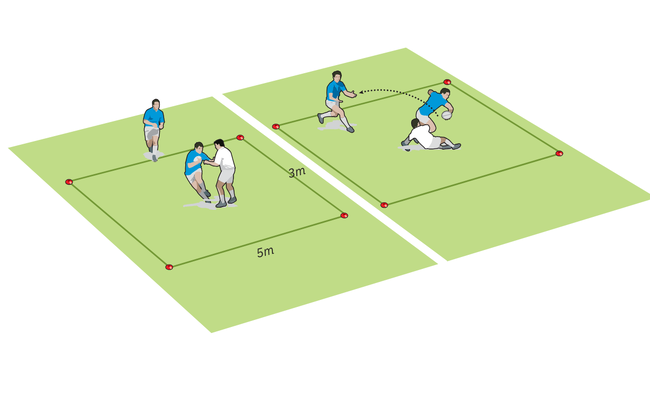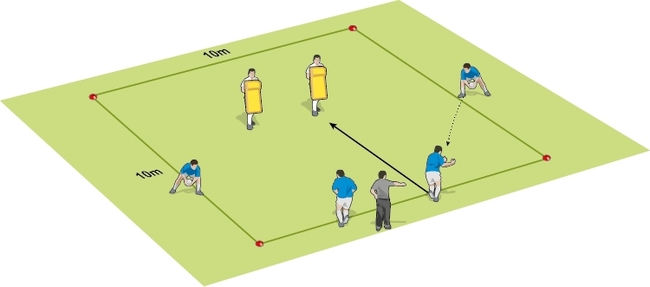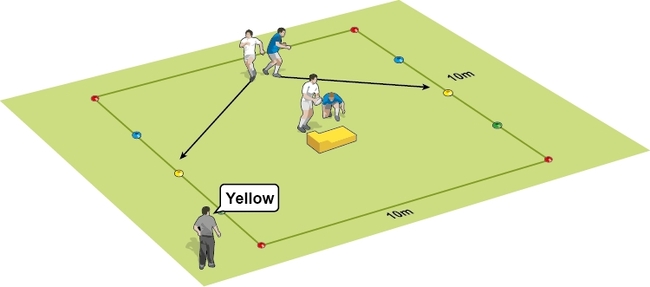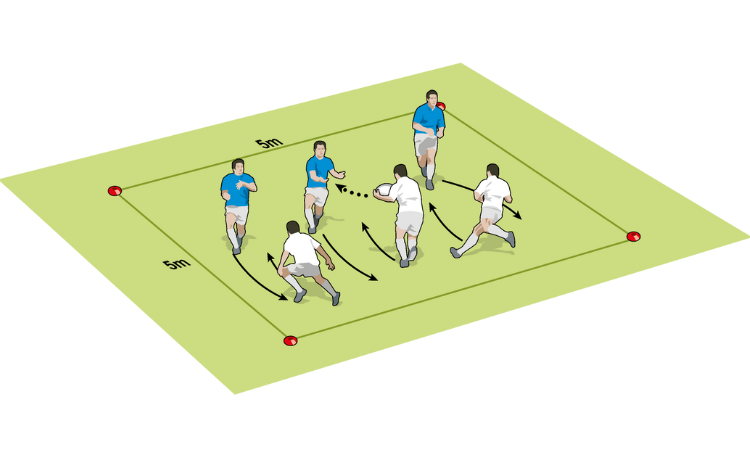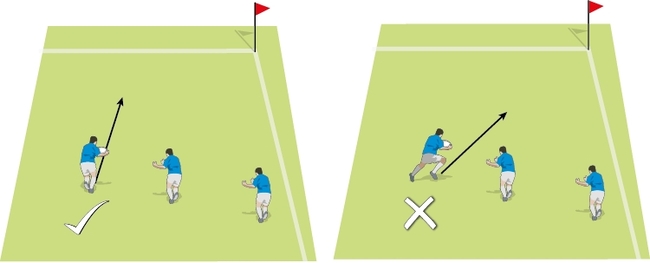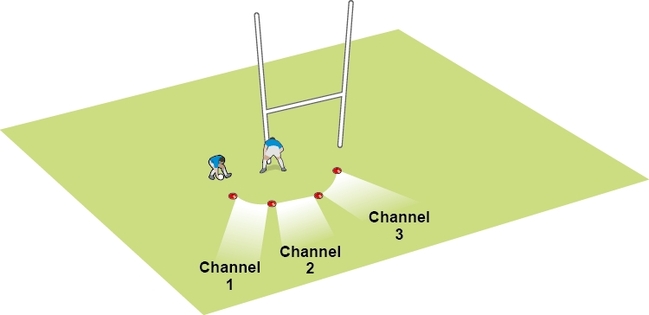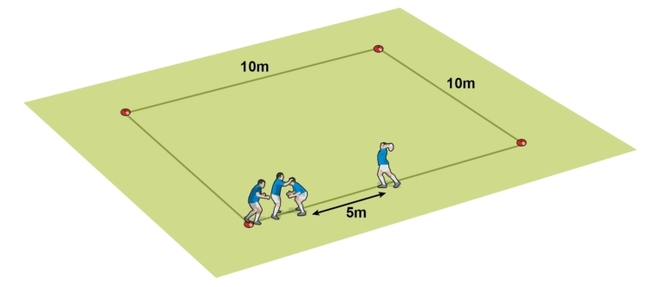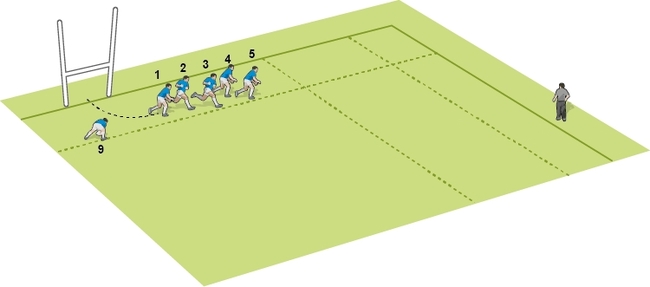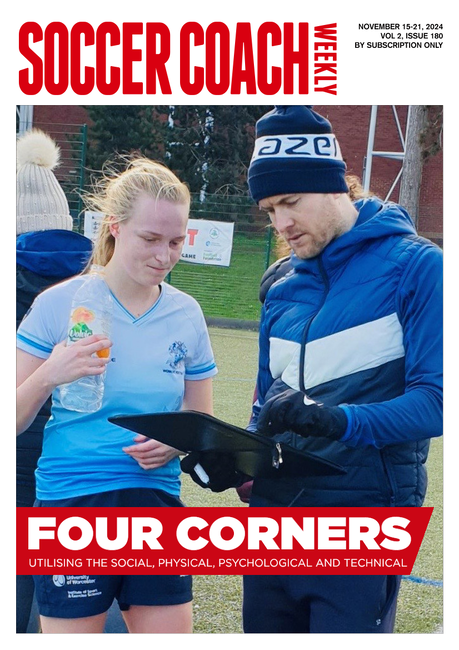Risk and reward for jackling
Attempting to steal tackle ball can lead to turnovers, but also has a nasty habit of leading to penalties. Balance the pros and the cons.
Legally stealing the ball at the breakdown, using hands, is known as ’jackling’.
It can provide superb counter-attacking opportunities, relieves defensive pressure and can be heartbreaking and frustrating for teams who were on the attack.
However, the jackle has potential risks that must be weighed up.
TIME AND BALANCE

If the defender is far enough away, go for the ball

If the defender is close by, drive over into that defender
If the tackle is made and all opposition players are off their feet, and/or not near the ball, there could be an opportunity to jackle.
The key is the amount of time available before opposition support players arrive.
The jackler must be on their feet and come through the gate low to the ground and balanced.
They are in a strong position if they reach down for the ball below their head or chest, rather than reaching forward for the ball, ahead of their head.
Their legs need to be wider than shoulder width apart, with knees low to the ground. Their balance, both as they reach for the ball and after any contact on them, will determine the end result of the jackle.
Referees are far more aware of a jackler putting their hands beyond the ball. It’s an easy call to make, so players have to work harder at retaining their balance.
The best referees also look at whether the ball is lifted by the jackler. That indicates whether they are balanced and supporting their own weight.
The best players don’t rest their hands on the ball. They are actively moving and shifting the ball. If they can’t, then the tackled player must be holding onto the ball.
THREATS AND COUNTER-MEASURES
If time and/or balance are restricted–because there are opposition players close by to contest the jackler and/or ball – then the jackle becomes ineffective and could cost a penalty.
In this instance, the potential jackler is advised to try to drive past the ball, by counter rucking. If this is not possible, their next thought should be to set up in defence.
WEIGHING UP THE RISKS
Statistics show that, despite the boost that successful jackling gives, the ratio of trying to win the ball and actually winning it is very low.
This is compounded when poor technique or knowledge of the laws result in the concession of expensive penalties.
The message is that jackling is a specialist skill, perfected by very few – you are better advised to focus on the counter-ruck and defensive organisation.
Jackle if the jackler can get their hands on the ball, but NOT while reaching forward. If you can’t jackle, drive past the ball.
Related Files
Newsletter Sign Up
Coaches Testimonials

Gerald Kearney, Downtown Las Vegas Soccer Club

Paul Butler, Florida, USA

Rick Shields, Springboro, USA

Tony Green, Pierrefonds Titans, Quebec, Canada
Subscribe Today
Be a more effective, more successful rugby coach
In a recent survey 89% of subscribers said Rugby Coach Weekly makes them more confident, 91% said Rugby Coach Weekly makes them a more effective coach and 93% said Rugby Coach Weekly makes them more inspired.
Get Weekly Inspiration
All the latest techniques and approaches
Rugby Coach Weekly offers proven and easy to use rugby drills, coaching sessions, practice plans, small-sided games, warm-ups, training tips and advice.
We've been at the cutting edge of rugby coaching since we launched in 2005, creating resources for the grassroots youth coach, following best practice from around the world and insights from the professional game.
